‘Nowhere to Run To’
A young Iraqi man attending college in Florida sees his life upended by 9/11 in this excerpt from the novel "When All Else Fails."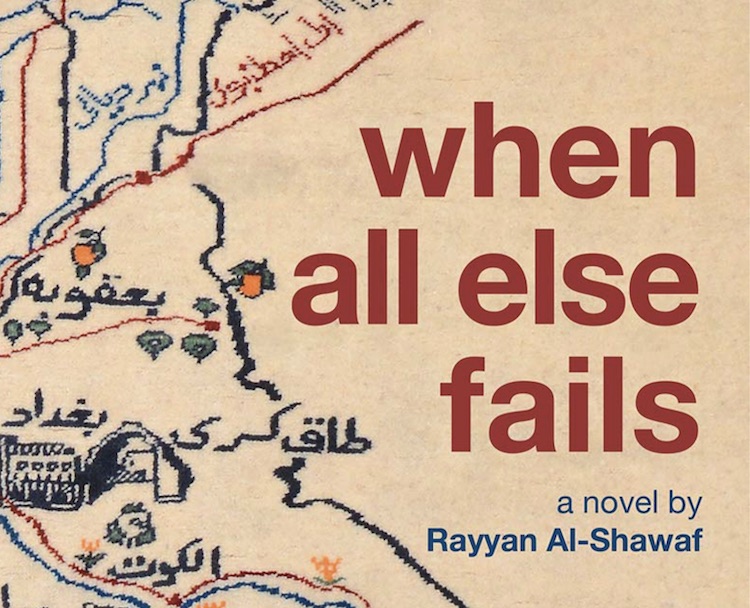 Interlink Publishing Group
Interlink Publishing Group
Excerpted from the first chapter of “When All Else Fails,” Copyright 2019, Rayyan Al-Shawaf. Published by Interlink Books on April 23. This excerpt is reproduced with the permission of the publisher. All rights reserved.
On the morning of September 12th, 2001, I set off by car from northeast Orlando, where I lived, for Winter Park, a suburb to the west, convinced I had to see Hashem—though I wasn’t sure why.
It had found me. The mini-Moloch that used to chase me around Lebanon had followed me to the States, except now it was all grown up and really pissed. How could this happen?
One minute, you’re taking a leak, your tendency toward idle contemplation in such instances leading you to ponder why James Earl Jones’s baritone voice is so often described as “commanding.” And the next minute, you’re sitting in front of the television watching CNN. Not because of James Earl Jones’s commanding way of saying “This…is CNN,” but because, while flipping through the channels, you come across a vaguely familiar high-rise building with a large hole in it, from which smoke is billowing.
I knew it was an attack as soon as I saw that building, despite the fact that the people on TV kept going on about a “tragic accident.” I also knew, instinctively, who―or pretty much who―had carried it out. The first thought to enter my mind concerned my former friend Khaled. You fool, if only you’d waited, you’d have found yourself in precisely the situation you longed for. How not, with Arabs and Muslims in the States surely about to enter an era in which the burden of proof would fall on them to prove their humanity?
When the second plane hit, thoughts of fleeing, of just grabbing a bag and jumping in the car and driving away like some sort of fugitive, invaded my mind. But I had nowhere to run to. No Ashrafieh if skirmishes broke out in Hamra, no Brummana if Ashrafieh blew up. America was thousands of times larger than Lebanon, but because it was a real country as opposed to a patchwork of distinct and feuding localities, and because the now giant Moloch, as ravenous for human life as ever, had devoured so many people with just one bite, someone like me, whose appearance betrayed a shared geographic if not ethnic origin with the bloodthirsty ogre, could not hide anywhere.
As it happened, I was a pretty jittery and suspicious guy to begin with. When my buddy Lewis and I had gone to the Korean restaurant on East Colonial Drive for dinner one night a few weeks earlier, he suggested we try the “Bi Bim Bap.” I convinced him otherwise, insisting that the dish didn’t actually exist. “Trust me, man, these Koreans only put ‘Bi Bim Bap’ on the menu so that we say it so that they laugh at us,” I explained.
Now, driving toward Winter Park, I consulted the rearview mirror every so often, as was my habit, so that if I glimpsed any sort of untoward developments, I could take appropriate action. However, the development I anticipated on this occasion was not the otherwise expected Mossad agent materializing in the backseat to assassinate me, but rather a police car with flashing lights indicating that I should pull over—which I desperately wanted to do, so that I could surrender (even though I hadn’t done anything) and put an end to this nightmare. Yet to my consternation, every time I checked, no police cars appeared in the mirror. In fact, the streets were virtually empty.
My wheels were new. A few months earlier, midway through my junior year, I had bought a used 1997 Geo Metro (a compact hatchback) with some money de Monet my parents had kindly wired me for the purpose. I made the acquisition for a simple reason. In olden times, a man had to slay a dragon to win a woman’s favor; today, he needed an automobile. My fortunes in the romance department hadn’t changed since I scored the car (which made me consider trying to get my folks to also spring for a sword, so that I could seek out any aged, doddering dragons busy foraging for leftovers in dumpsters behind fusion cuisine restaurants), but at least now I could zip over to the University of Central Florida campus and back to my apartment complex, rather than spend half an hour hoofing it each way, or waste time waiting for the shuttle bus. I could also go to Winter Park.
Normally, on a drive like this, I’d admire the scenery, a lush, verdant landscape stippled with shimmering teal blue lakes that exemplified Central Florida’s natural beauty. On the approach to Winter Park, I enjoyed trundling down one road in particular, the oak trees overhanging both sides forming an umbriferous canopy that shards of sunlight sliced through here and there, giving me the impression I had entered a tunnel haphazardly illuminated by jagged ceiling lamps.
As I’d roll into Winter Park itself, a town gobbled up by the ever-expanding metropolis of Orlando, my attention would shift to street scenes. Here you’d see people bustling about, ducking into and out of boutiques, restaurants, and coffee shops, infusing the place with a city vibe. Orlando was big but sprawling; outside the downtown area, you couldn’t find much building density, and the population was thinly spread. In fact, whole swaths of territory lay vacant save for the occasional strip mall, which usually included a Publix supermarket, a Blockbuster video store, and a few other assorted commercial establishments. (Oftentimes, you’d have two such malls on either side of the same stretch of an otherwise empty boulevard. For some reason, these always seemed to have drugstore giants CVS and Walgreens facing each other.) Surveying the ground below from the airplane when I first came over from Beirut via London, I couldn’t spot any signs of urban concentration.
Little Winter Park, on the other hand, was compact and overflowing with people. Park Avenue, the brick-cobbled main drag, brought to mind some of the streets of Rome, where I had lived before we moved to Beirut. Although I liked the chocolate-box look of this affluent town-cum-suburb, I hesitated to express this to other UCF students for fear of being seen as a bourgeois wannabe.
None of this was on my mind now, with horrifying images of desperate people flinging themselves out of the burning Twin Towers’ windows—exchanging one kind of certain death for another—having displaced almost everything else. Driving from northeast Orlando to Winter Park, I felt the impact of what had happened in New York City, Washington, DC, and rural Pennsylvania the day before more forcefully than anything that had taken place in Florida since my arrival nearly three years earlier. Nothing even came close.
Indeed, following the presidential election in 2000, I watched the news programs on the chaos unfolding in the Sunshine State as though it were occurring in another country. This was true of most UCF students, whose political apathy during the election predictably held firm in its aftermath.
And a year before that, when the cops arrested Khaled, I felt that they had surgically removed him from our midst without so much as grazing the rest of us, his (precious few) friends and acquaintances. We were left shocked both by what he had done and by the speed of his very much deserved punishment. But this thing yesterday hadn’t simply shocked me; it had vivified and broadened my consciousness, so that I became aware of the absence of any natural law governing societal reactions to disruptions large and small. Nothing had guaranteed that, with Khaled’s arrest and trial (a minor incident in the grand scheme of things), or the Supreme Court’s ruling on the presidential election (a pretty big deal whichever way you looked at it), hotheads emotionally invested in either case wouldn’t make trouble. That they didn’t in fact stir anything up made me complacent, so that I took it for granted that courtroom verdicts resolved conflicts and crises. Now, I was forced to think. What I came up with was hardly comforting: Even if the United States apprehended and tried the planners of these attacks, or went so far as to kill them, things still wouldn’t return to normal.And before any of that happened…well, who knew how bad it could get?
I needed to talk to Hashem, having convinced myself that he could help me make sense of the situation. Not that he proved especially insightful on the phone when I had called him the evening of the previous day—but I attributed that to the sense of dread that crept up on us at the same time. After we said our (awkward) hellos, the conversation went something like this:
Me: That was pretty bad, huh?
Hashem: Yes, terrible.
Me: Looks like it was…you know…terrorism.
Hashem: Oh, I’m sure of it.
(A pause pregnant with meaning—as well as a sudden shared suspicion of the presence of something nebulous and undefined, but very, very attentive.)
Me: You know, I condemn terrorism in the—
Hashem: I have always condemned terrorism very—
Me: Strongest terms.
Hashem: There are no terms stronger than the ones I have used.
Me: Unless you consider what I’ve said on the subject.
Et cetera.
In reality, Hashem, whom I had known for a couple of years, didn’t really fit the bill as the sort of reasonable guy able to provide the sober analysis I craved. He was too conflicted and captious. A Lebanese who had come to the States from his country to pursue an MA in liberal studies at Winter Park’s Rollins College (which the actor Michael Nouri, an Iraqi like me, had attended), he loved the freedom, security, easygoing culture, and physical vastness of America. But in addition to his many criticisms of US Middle East policy (some of which I shared), he also harbored a deep-seated urge to carp about unsavory aspects of American society, especially lesser-known ones, an activity from which he derived much satisfaction. He read up on the history of racism in Florida and enjoyed bringing its formerly prominent public role to the attention of those who didn’t regard the state as culturally Southern. Naturally, he knew all about the Rosewood race riot of 1923, the popularity of the local chapter of the Ku Klux Klan—which assassinated early Civil Rights activist Harry T. Moore and his wife Harriet Moore—in the 1940s and ’50s, and the decades-long career of notorious lawman Sheriff Willis V. McCall. In my view, this ugly history was important, but I cringed at Hashem’s claim that white Floridians were still racist even if they rarely translated their fanaticism into action, and that white American society (from which he drew most of his friends) remained sick to its core.
In general, I took Hashem’s anti-Americanism in stride, reasoning that people from our part of the world sometimes needed to suppress the vague but insistent feeling that we now lived in a land that, by its very tranquility and stability, mocked our countries’ lack thereof, and challenged us to find some—any—fault with it. Still, a couple of things about him did disturb me. The first admittedly became an issue only when I took an Introduction to Judaism class at UCF: How would Hashem explain his name when the fateful day arrived and he was faced with the righteous opprobrium of the exalted, hierarchy-obsessed, and hypersensitive HaShem?
The second matter concerned his reverence for Saddam Hussein. He was genuinely saddened that I, an Iraqi, didn’t share his esteem for the bloodthirsty dictator. Hashem maintained that, were Saddam to rule chaotic and unstable Lebanon, he’d turn it into an ordered and well-run country. I wondered if his preference for Iraq’s Saddam over Syria’s Hafez Al-Assad stemmed from sectarian reasons—Hashem, like Saddam, was a Sunni Muslim, while the Syrian dictator and his son/successor were Alawite—or because Assad had helped to destroy much of Lebanon during its ruinous civil war, which lasted from 1975 until 1990, and proceeded to make it a Syrian vassal state.
At any rate, my friend’s fantasy suffered from a major inconsistency. Hashem yearned for the Iraqi president precisely because the latter was iron-fisted and brutal, yet in his alternate reality, Saddam the president of Lebanon never deployed these signature traits against him or his family and friends. The chimerical Saddam, though endowed with his real-life counterpart’s murderousness and sadism, would unleash such savagery only on people who had wronged or taken advantage of Hashem in some petty dispute or other. This Saddam didn’t demand a cut of Hashem’s father’s business, never sided with anyone against him, and didn’t lead a political party some of whose local officials came knocking on his family’s door demanding to marry his unwed sisters or draft them as “secretaries.” He existed only to please Hashem and advance his interests.
When I arrived at the handsome white-brick Park Avenue building where Hashem lived, he was practicing getting deported…
Your support matters…
Independent journalism is under threat and overshadowed by heavily funded mainstream media.
You can help level the playing field. Become a member.
Your tax-deductible contribution keeps us digging beneath the headlines to give you thought-provoking, investigative reporting and analysis that unearths what's really happening- without compromise.
Give today to support our courageous, independent journalists.
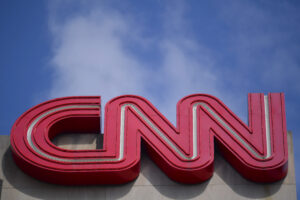
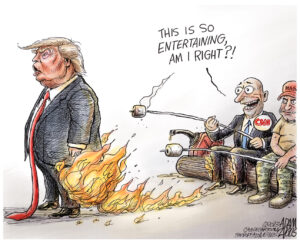
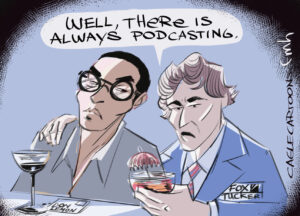
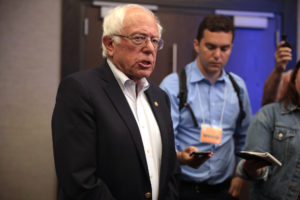
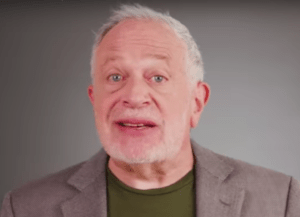
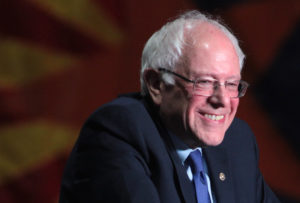
You need to be a supporter to comment.
There are currently no responses to this article.
Be the first to respond.